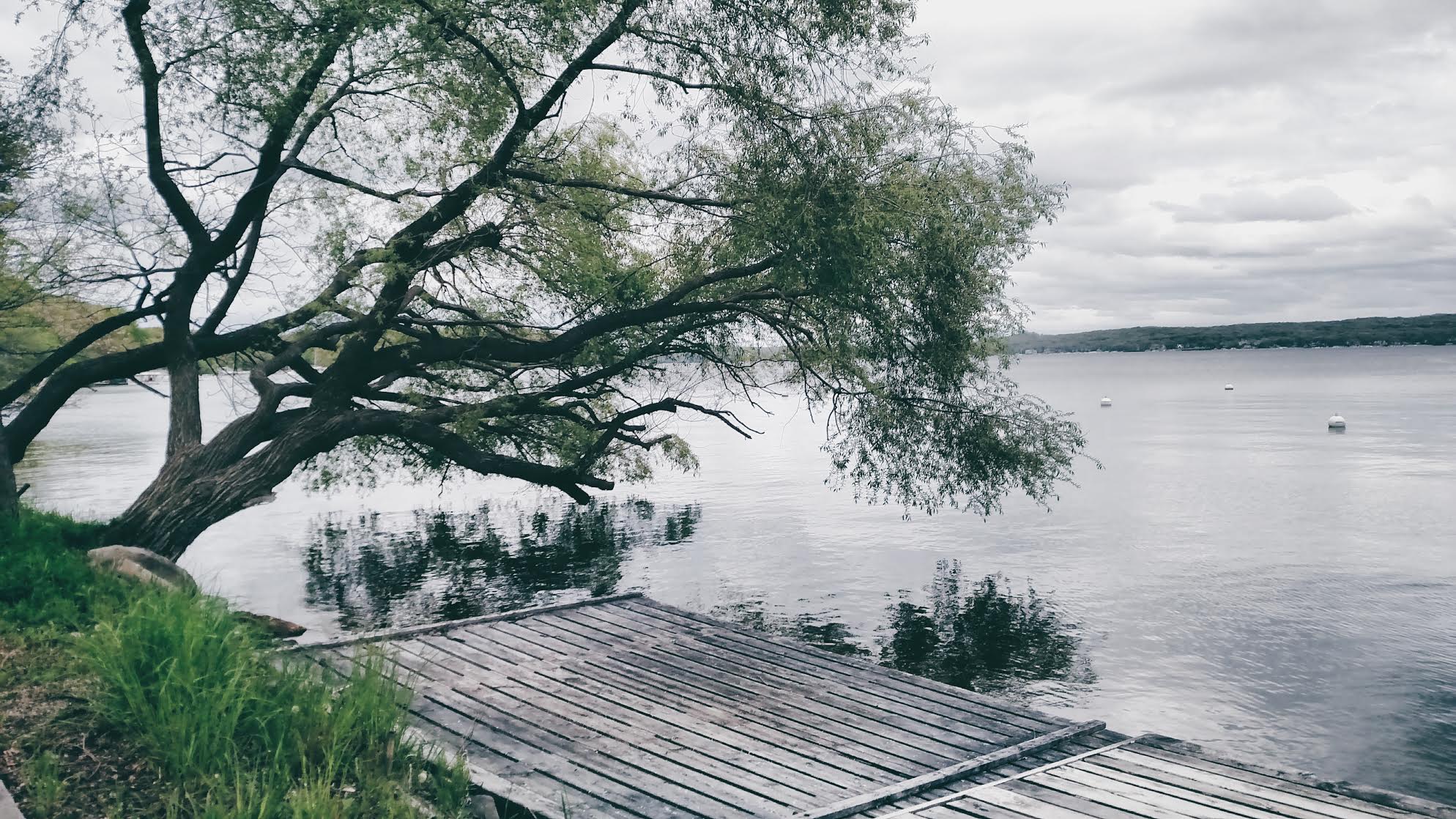My Relationship with Nature: It's Complicated
By Kimberly Chow
The first 18 years of my life were spent in South Dakota, a state that surprisingly has more miles of shoreline than Florida. Sprawling fields and open grazing land separate a population so small that the entire state only has one telephone area code. I spent a lot of time outdoors. My summers were spent braving the humid heat to jump in the air trying to catch the cotton drifting down from the towering cotton trees. Winters meant building snow forts under the tallest trees and snowball fights with the neighbors. Childhood and nature were intertwined for me from the start. And so, nature and I began a special relationship together. This relationship blossomed as it developed. I took for granted all the time I could spend outdoors with nature.
Moving to college was different, as I knew it would be. Northwestern's campus, although delightful, lacked the open space I was used to. I didn't realize how drastically different my time schedule would be. Suddenly, my weekends weren't spent doing yard work or picking the berries off of local mulberry trees. Now, my weekends were spent inside Mudd Library figuring out how to solve relativity problems for physics. My only interaction with nature were the flower beds I spotted on my daily walk down Sheridan.
Because of this, I began questioning the boundaries of what "nature" is. Before coming to Northwestern, I would have told you that "nature" was defined as untouched pristine forest preserves and state parks. On campus, the only nature I get to see are the carefully cultivated blooms and shrubs lining every pathway and border. Is spending time sitting on the steps of Deering Library considered spending time with nature? What about frolicking on the fake beaches made by sand trucked in by the University? I hold issue with the artificiality of much of our campus's flora, yet it is also the only source of greenery in my life. My relationship with nature is complicated, yet I don't know how to uncomplicate things.
I had a conversation with my friend Victor recently about all of this. It was late one Friday night, and my roommate and I were hanging out in his apartment. Somehow, our conversation took a turn to lament our lack of a connection to the outdoors.
"We should go camping sometime," he said. "Rent a tent. Maybe build a campfire and roast some s'mores. We could go to a nearby campsite. Or we could just pitch a tent on my balcony." He gestured to his apartment's balcony overlooking downtown Evanston. I snorted.
"There's so much light and noise pollution. Doesn't that defeat the purpose of camping?"
He shrugged. "Maybe one weekend when we're free, we can think of somewhere to go."
I grimaced. My roommate had fallen asleep face-down on the kitchen table next to me, exhausted from a week of midterms. I doubted that we would ever have the energy to go camp responsibly in the wilderness. A free weekend spent soaking up the great outdoors would be difficult to arrange, though not impossible.
I don't know if we'll actually go camping. I don't know why there always seem to be landscapers all over campus, uprooting and trashing the old plants to replace them with newer, showier flowers and shrubbery. I don't know how to define nature and how to separate it from the outdoors, or whether trekking to class counts as being in "nature.” The future of my relationship with nature is nebulous, but I'd rather my relationship be complicated than nonexistent.
Oh, and if you ever want to go camping, hit me up.

